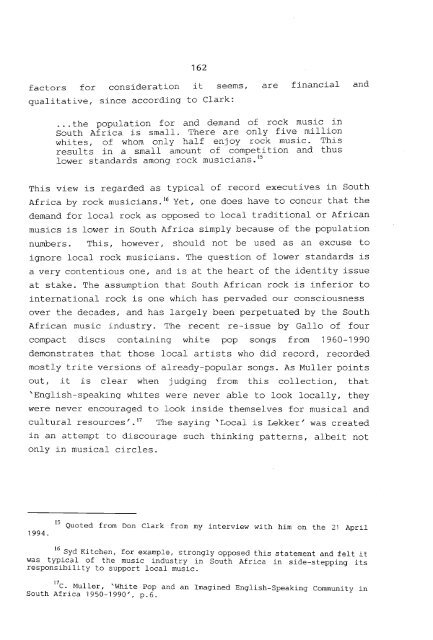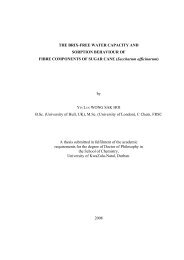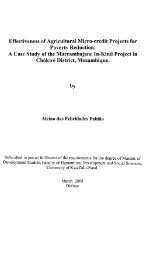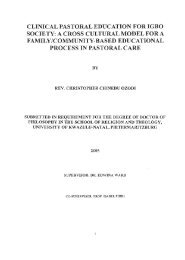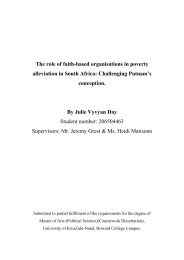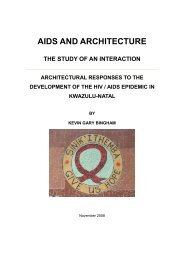FROM ROCK 'N 'ROLL TO HARD CORE PUNK - UKZN ...
FROM ROCK 'N 'ROLL TO HARD CORE PUNK - UKZN ...
FROM ROCK 'N 'ROLL TO HARD CORE PUNK - UKZN ...
You also want an ePaper? Increase the reach of your titles
YUMPU automatically turns print PDFs into web optimized ePapers that Google loves.
162<br />
factors for consideration it seems, are financial and<br />
qualitative, since according to Clark:<br />
...the population for and demand of rock music in<br />
South Africa is small. There are only five million<br />
whites, of whom only half enjoy rock music. This<br />
results in a small amount of competition and thus<br />
lower standards among rock musicians. 15<br />
This view is regarded as typical of record executives in South<br />
Africa by rock musicians. 16 Yet, one does have to concur that the<br />
demand fbr local rock as opposed to local traditional or African<br />
musics is lower in South Africa simply because of the population<br />
numbers. This, however, should not be used as an excuse to<br />
ignore local rock musicians. The question of lower standards is<br />
a very contentious one, and is at the heart of the identity issue<br />
at stake. The assumption that South African rock is inferior to<br />
international rock is one which has pervaded our consciousness<br />
over the decades, and has largely been perpetuated by the South<br />
African music industry. The recent re-issue by Gallo of four<br />
compact discs containing white pop songs from 1960-1990<br />
demonstrates that those local artists who did record, recorded<br />
mostly trite versions of already-popular songs. As Muller points<br />
out, it is clear when judging from this collection, that<br />
'English-speaking whites were never able to look locally, they<br />
were never encouraged to look inside themselves for musical and<br />
cultural resources,.17 The saying 'Local is Lekker' was created<br />
in an attempt to discourage such thinking patterns, albeit not<br />
only in musical circles.<br />
1994.<br />
15 Quoted from Don Clark from my interview with him on the 21 April<br />
16 Syd Kitchen, for example, strongly opposed this statement and felt it<br />
was tYP,ic,al, of the music industry in South Africa in side-stepping its<br />
responslblllty to support local music.<br />
17C . Muller, 'White Pop and an Imagined English-Speaking Community in<br />
South Africa 1950-1990', p.6.


